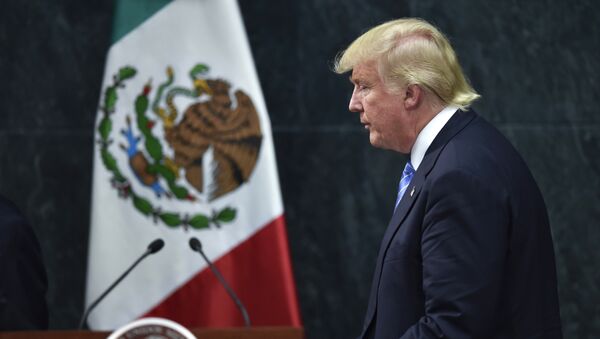US President Donald Trump’s confrontational stance toward Mexico is finally hitting him where he’s bound to notice it: America’s tourism industry.
By the end of 2017, the US is projected to sustain $1.6 billion in economic losses as Mexican tourists lose interest in visiting the US, Forbes reported March 30.
The real estate mogul technically divested his interests from the Trump Organization, but his family still manages a host of hotel assets in the US. According to Trump Hotel CEO Eric Danziger, the company is planning to expand its US portfolio. “There are 26 major metropolitan areas in the US, and we’re in five,” Danziger said at an investment summit in January. The firm has eight hotels in total, but Danziger doesn’t anticipate “any reason that we couldn’t” manage properties “in all of them eventually.”
As candidate for president of the Unites States, Trump called Mexicans rapists, criminals and people “bringing crime” to America.
Even measuring Trump by his conservative peers yields a grim picture as to how much damage his comments may have caused. “With few exceptions, immigrants are less crime-prone than natives or have no effect on crime rates,” Alex Nowrasteh of the right-of-center Cato Institute concluded in a post dubbed “Immigration and Crime — What the Research Says.”
Still, immigration as a socioeconomic concern, and thus perhaps a political one too, may well ripple through America’s collective thought for the foreseeable future. “The very large ethnic differences in economic status that characterize the current immigration population will likely dominate discussions of American social policy for much of the 21st century,” a 2006 National Bureau Economic of Research paper found.
Trump’s inflammatory rhetoric scapegoating the people of other countries, such as painting China and Mexico as the source of America’s economic anxieties, seems purposefully misguiding at best. Since 2007, one year before credit default swaps and mortgage backed securities tipped the markets into freefall, illegal immigration flows have been "zero or negative," economist Noah Smith wrote in a Bloomberg View article.
Smith argued there is no immigration crisis. "Instead, the current anti-immigrant fervor among Trump’s hardcore supporters might simply be a brief spasm of anger by a strident minority," Smith observed.
Calls for security that embolden police state policies pose a more relevant and egregious threat to the American way of life, Smith said, than the "imagined threat of immigration."


